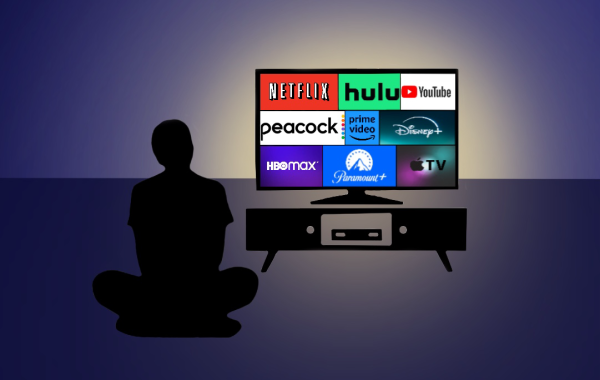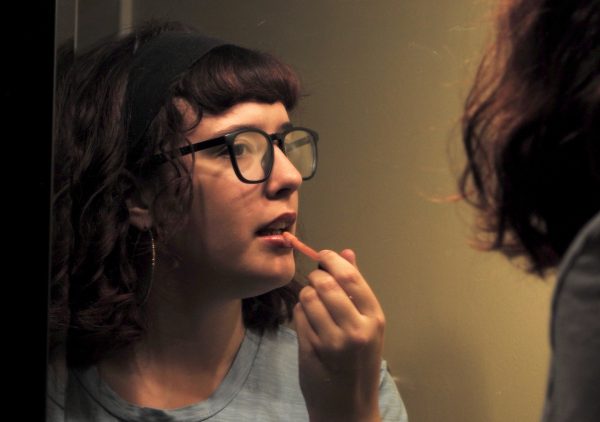The bad stereotype
Mental health has had a bad stereotype for a long time, it is time to change that.

photo by Bethany Barker
Stereotypes about mental health illnesses can lead to even worse problems for victims, including low self esteem. If you are struggling with mental health issues, SAMHSA’s national helpline is free and available 24/7. Call 1-800-662-HELP
Amelia* opened up the first time to her mom with a therapist, to try and soften the blow. She was scared of what her mom and other family members would think when they found out about her struggles. The path to this point has not been healthy: she self-medicated with drugs and alcohol
It was one of the hardest things she had done, but telling her mom was another step to dealing with the problem, and Amelia* was relieved her mom did not yell or punish her – she just offered support.
Amelia* was diagnosed with bipolar disorder, characterized with depression and mania, when she was 10 years old. A growing number of teens have to deal with all kinds of mental disorders, including; Generalized anxiety, depression, PTSD, phobia, insomnia, eating disorder, alcohol abuse, and many others. But one of the hardest pieces to deal with is the negative stereotypes that come with any kind of mental issue.
“Negative stereotypes create unhealthy views on personal identity among those who suffer from mental illness themselves,” according to the TMS Center of Lehigh Valley. “97% of people with a mental illness are not dangerous, they are just in need of help.”
Mental illness has always had a strong negative connotation. The stereotype is that mental illness should be dealt with quietly and independently, and that the issue is embarrassing to anyone associated with it. Psychotherapist Christie Rogers, who has been in practice for over 10 years in Oviedo, believes that having these thoughts can be normal.
“Worrying about what others will think or fearing stereotypes can be common anxious thoughts and can be a great first conversation with a therapist,” Rogers said. “Remember that counseling is a confidential service and clients have confidentiality.”
A common thought that people can have with a mental illness is they think the closest people to them will judge them for what they are going through. Some people are scared to open up, thinking friends and family will think they are crazy and stereotype them.
“I would say that bipolar disorder has a bad rap in general. When you have big labels like that on you people tend to treat you differently and it is scary because it is not something I can change,” Amelia* said. “I am a good and smart person. I know I am not crazy but I am scared of being stereotyped that way.”
According to David L. Vogel from the British Psychological Society, the fear of being stereotyped by others sometimes leads people to avoid seeking help. The stigma can also be internalized, leading to further reducing the likelihood of getting help.
Another effect of being stereotyped is low self-esteem. The stigma of mental health being placed onto someone can lead to deeper root problems with how someone with a mental disorder views themselves.
“Sometimes when I think other people are judging or stereotyping me I just think of myself as the ugliest and worst person on earth and there is nothing I can do about it. It makes me feel so much worse than I already do,” Amelia* said. “There can also be days where I think of myself as the best person on earth, there is no middle ground for me.”
According to the TMS Center of Lehigh Valley, due to formed stereotypes, people believe admitting they are suffering means that they are admitting they are crazy. This perception is false and prevents people from getting the professional help they need.
“I am scared to go to therapy because I feel like I will not be seen or heard properly,” Amelia* said. “I do not want to open up too fast and have anyone think I am crazy.”
It is important to remember that it is not anyone’s fault if they have a mental illness. The stereotypes that surround the concept are not real and they should not be listened to.
“Majority of people I have seen have significantly benefited from therapy. I have never seen it hurt anyone and I would recommend it to anyone who is open to and ready to try it,” Rogers said.
Amelia* asked to remain anonymous.
Your donation will support the student journalists of Hagerty High School. We are an ad-free publication, and your contribution helps us publish six issues of the BluePrint and cover our annual website hosting costs. Thank you so much!






